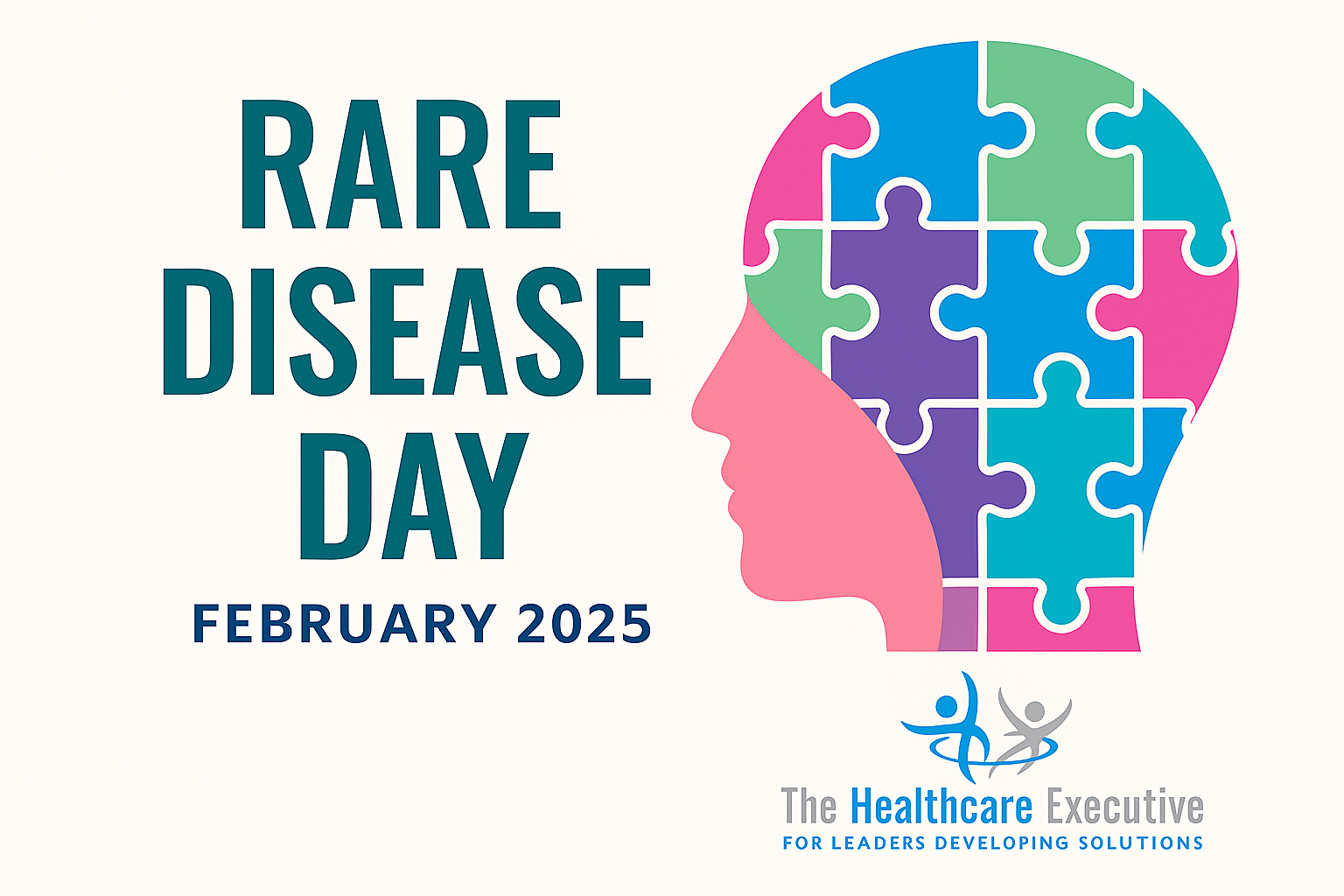Rare Disease Day 2025: How Hospital Leaders Can Advance Equity and Innovation

- Posted by Greg Wahlstrom, MBA, HCM
- Posted in Health Observance Calendar
Healthcare Executives Must Champion Inclusion, Research, and Access for the 1 in 10 Americans Living with a Rare Disease
Published: February 28, 2025
Rare Disease Day, observed annually on the last day of February, brings attention to the more than 300 million people globally—over 30 million in the U.S.—affected by one of over 7,000 known rare conditions. Yet despite these staggering numbers, patients often face long diagnostic journeys, delayed treatment access, and institutional invisibility. In 2025, hospital leaders must acknowledge that rare disease care is not a fringe issue but a mainstream equity imperative. At Children’s National Hospital, a Rare Disease Institute offers a precision care model integrating genetics, counseling, and care navigation. Hospital executives across the country must follow suit, ensuring that patients with rare conditions are included in quality metrics, clinical strategy, and resource allocation frameworks.
Data gaps remain a fundamental barrier. Many rare diseases are underrepresented—or entirely excluded—from EMR systems, payer analytics, and population health dashboards. Baylor College of Medicine has developed an interdisciplinary rare disease registry that integrates genomics, pharmacy, and family health history. Leaders must advocate for similar tools within their own institutions to identify, stratify, and serve these patients proactively. Rare disease isn’t just a clinical frontier—it’s a data strategy challenge. As AI expands in diagnostics, hospital CIOs should ensure rare disease variables are not excluded from algorithms, perpetuating bias. A rare disease equity strategy starts with data inclusion, and hospital executives must drive the standard.
Workforce training and support are equally vital. Because many rare conditions fall outside common medical education curricula, clinicians often report feeling unprepared or unsupported. Mass General for Children has piloted CME modules and case simulations for rare pediatric disorders, equipping providers to make earlier referrals and more confident diagnoses. CMOs and HR leaders should invest in continuing education and cross-specialty collaboration. Nurse navigators, social workers, and genetic counselors must be viewed not as ancillary—but essential. A health system’s ability to serve rare disease populations is directly tied to the competencies of its people, which start with executive investment in learning infrastructure.
Community partnerships elevate trust and transparency. Patients with rare diseases often feel invisible or misunderstood within large healthcare systems. Partnering with organizations like the National Organization for Rare Disorders (NORD) allows hospitals to extend advocacy into policy, family engagement, and patient education. For example, UCSF Benioff Children’s Hospital integrates rare disease support groups into its family care model, providing bilingual access and community outreach events. CEOs must ensure that branding includes compassion—and that partnerships amplify inclusion. Rare disease care is not only a clinical issue but a reputational one. Hospitals that lead on equity must reflect it in the voices they uplift.
Looking ahead, Rare Disease Day should become a leadership checkpoint for system inclusion. Executives must review whether rare diseases are accounted for in strategic planning, payer contracting, and care redesign. The future of healthcare will be personalized, data-driven, and deeply human. Those living with rare conditions—and the clinicians who serve them—deserve visible support from the highest levels of hospital leadership. When hospitals invest in rare disease strategies, they don’t just change policy—they change lives. And for patients living with conditions few understand, leadership makes all the difference.
Discover More on Building Trust Through Clinical Inclusion
To explore how hospital leaders can create inclusive systems that build trust across marginalized and medically underserved communities, read our executive blueprint.
Internal Links
- Rebuilding Trust in U.S. Healthcare: A Leadership Blueprint
- AI in the C-Suite: Redefining Decision-Making for Healthcare Executives



